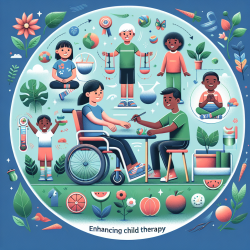Introduction
As practitioners in the field of speech language pathology, our primary goal is to foster positive developmental outcomes for children. Recent research highlights an intriguing connection between social mindfulness and environmental performance, offering new avenues for enhancing our practice. The study titled Reply to Nielsen et al.: Social mindfulness is associated with countries’ environmental performance and individual environmental concern provides valuable insights that can inform our approach to therapy, particularly in the context of online services like those offered by TinyEYE.
Understanding Social Mindfulness
Social mindfulness (SoMi) refers to the consideration of others in decision-making processes, emphasizing kindness and prosocial behavior. The research suggests that SoMi is linked to better environmental performance at the national level and correlates with individual environmental concerns. This association underscores the potential of SoMi to influence broader societal outcomes, including sustainability and social capital development.
Implications for Practitioners
For speech language pathologists, integrating the principles of social mindfulness into therapy sessions can have profound effects on children's social and cognitive development. Here are some practical strategies:
- Modeling Prosocial Behavior: Demonstrate and encourage behaviors that reflect social mindfulness, such as sharing, empathy, and cooperation. Use role-playing activities to illustrate these concepts in a relatable manner.
- Incorporating Environmental Themes: Introduce topics related to environmental awareness and sustainability in therapy sessions. Discuss how small, mindful actions can contribute to larger environmental outcomes.
- Fostering Critical Thinking: Encourage children to think about the impact of their actions on others and the environment. Use storytelling and problem-solving exercises to develop these skills.
Encouraging Further Research
While the study provides a foundation for understanding the link between SoMi and environmental performance, it also highlights the need for further research. Practitioners are encouraged to explore the following areas:
- Longitudinal Studies: Investigate how social mindfulness develops over time in children and its long-term impact on environmental attitudes and behaviors.
- Cross-Cultural Comparisons: Examine how cultural differences influence the relationship between SoMi and environmental concern, and how these insights can be applied in diverse therapy settings.
- Integration with Technology: Explore how online therapy platforms can effectively incorporate social mindfulness principles to enhance engagement and outcomes.
Conclusion
By embracing social mindfulness, speech language pathologists can not only improve individual therapy outcomes but also contribute to a more sustainable and socially conscious future. This approach aligns with the broader goal of fostering holistic development in children, preparing them to become mindful, responsible citizens.
To read the original research paper, please follow this link: Reply to Nielsen et al.: Social mindfulness is associated with countries’ environmental performance and individual environmental concern.










